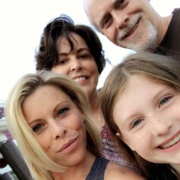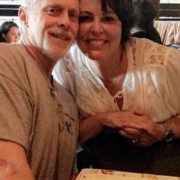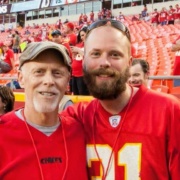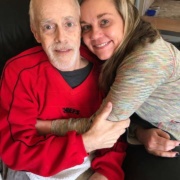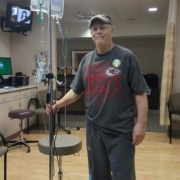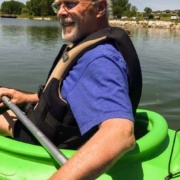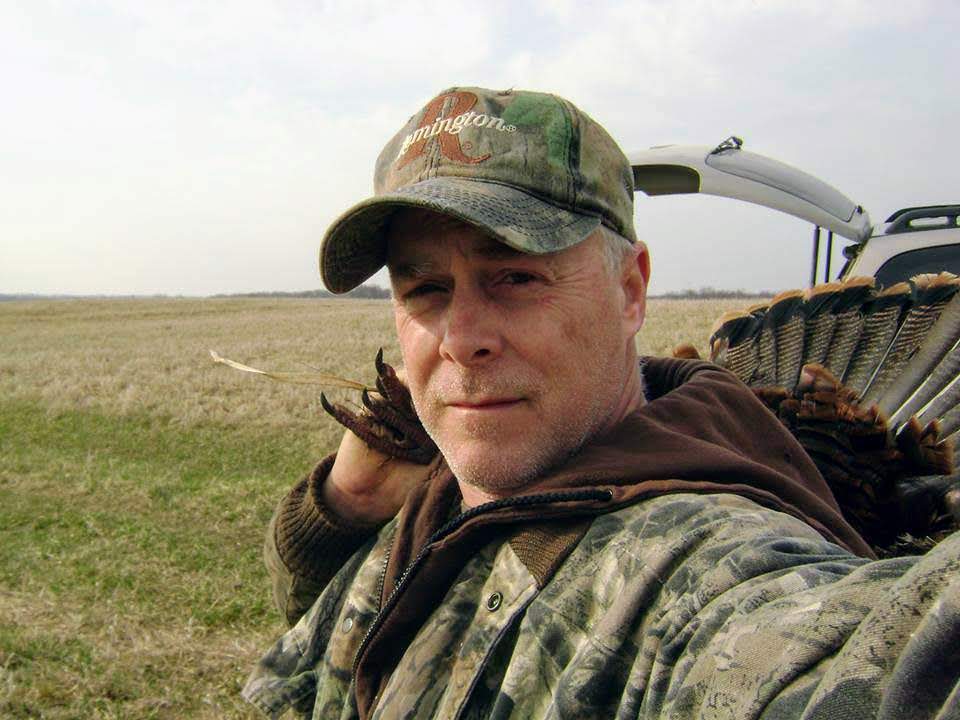
Written By Brooke Guinn
May 29, 2018
James (Jim) Chittenden
Diagnosed: November, 2016
Passed: March 19, 2018
Become Your Own Best Health Advocate
I’m sharing the story of my father who lost his battle with pancreatic cancer in hopes that it will inspire others to not only become more aware of its symptoms and risk factors but to become more vigilant advocates of his or her own healthcare, and to more assertively communicate with their general family practitioners. While the “average” 5-year survival rate of pancreatic cancer is only about 8.5% (2018), there are statistics that are surprisingly rarely discussed yet alone mentioned such as the following.
- The average 5-year survival rate when diagnosed after metastasis is an alarming 2.7%.
- The average 5-year survival rate while the tumor(s) is still localized at the primary site and is able to be surgically removed, the rate balloons to 34.3%.
Unfortunately only about 10% of cases are diagnosed at the localized stage prior to invading surrounding tissue, lymph glands, the blood stream, or spreading to distant organs.
* Above latest statistics source: National Health Institute (Seer Facts)
At a late metastatic stage, the only treatment is “palliative” treatment which only intends to extend quality of life versus surgical removal of the tumor which typically only occurs while the tumor is still contained in the pancreas. Surgery is generally the only potential “curative” treatment of pancreatic cancer.
A Short Summary of My Father’s Story
My father had always been physically fit having participated in high school and college athletics. He was an avid outdoors person. Hunting was his true passion. He was also an amazing vocalist and gifted artist. His family and friends would tell you he lived a healthy and spiritual lifestyle. After a productive day we could all envision him sitting under a tree admiring the splendor of a sunset. He was married for 42 years to his high school sweetheart, Debbie, and had five children including myself.
My father was truly an inspirational man. By sharing his story I hope to strengthen his legacy by inspiring others to become more aware, diligent, and vigilant of pancreatic cancer. This devastating cancer can strike anyone at any age whether they practice a healthy or unhealthy lifestyle. Knowledge is power. Know the pancreatic cancer symptoms and risk factors. Take command of your own health and communicate assertively in detail with your family doctor, particularly if there is history of cancer in your family.
Misdiagnosis of His Pancreatic Cancer
In early September, 2016 he began having back pain that radiated to his stomach area. He attributed the pain to carrying a heavy water cooler while on a recent vacation. Initially the pain was relatively minor but kept getting progressively more profound. In October he went to his primary care physician who ordered an EKG to rule out an immediate heart issue of which there was none. His doctor suggested his symptomatic pain was likely related to a case of acid reflux and prescribed the typical prescription.
By late November the pain became more severe and constant. He was also losing weight at a brisk pace and was severely fatigued. It became clear these alarming symptoms were well beyond what would ordinarily be attributed to acid reflux. A trip to the hospital emergency room was now in order. At the ER a CT scan found a 4 cm tumor on his pancreas that appeared to be cancerous. The symptoms all along were not due to acid reflux but pancreatic cancer, the most lethal of cancers.
The final diagnosis was stage 3 locally advanced pancreatic cancer. He was told surgical tumor removal was inoperable at that time since it was encased by his celiac artery making any chance of surgery too risky. His medical teams’ prognosis was that he had about two months to live. However my father and the family were not going to accept that conclusion without hope, faith and a fight for life. By the grace of God, his sister was a neighbor of Johns Hopkins trained pancreatic cancer surgeon, Dr. Richard Schulick. She asked the doctor to review my father’s scans and medical records for a second opinion.
A Ray of Hope For Surgical Removal of the Cancerous Tumor
After review, Dr. Shulick recommended that my father travel to Denver for a full assessment of his present condition by a larger multidisciplinary team of doctors, oncologists, and imaging specialists. The team proposed a plan of treatment that initially included 4-6 rounds of chemotherapy with Folfirnox that would hopefully reduce the size of the tumor permitting more room for surgical removal of the tumor in spite of the tight proximity of the artery.
After 4 rounds of chemo, the tumor was reduced in size. Targeted radiation further reduced the size even more. The treatment plan was achieved and a complex Appleby Procedure was scheduled for the end of June, 2017. Unfortunately after just two hours into a lengthy surgery, the surgical team discovered the cancer had already metastasized (spread) to the colon and the surgery was aborted.
It is important to note again that surgical removal of a cancerous tumor while it is still confined to the pancreas is generally considered the only “curative” treatment of pancreatic cancer. Once it has spread to other regional and distant areas, any continuing treatments are generally considered “palliative” that only intend to extend quality of life and minimize pain and discomfort. Extended life can become months to many years depending upon many factors including the stage at time of diagnosis, expertise of team surgeons, oncologists, and precision-based treatments that consider a patient’s set of DNA markers that help decide methods of attack. Some patients are still alive in excess of 20 years with the cancer still in remission while others are not quite as fortunate.
My Father’s Palliative Treatment
After a 4-week recovery from his shortened and then aborted surgery, a second line of chemotherapy, Gemcitabine and Abraxane, was selected. He had a good quality of life while taking this chemo. Even completing many projects around the house and exercising on some days. In fact after just one day of chemo and a blood transfusion, my dad was able to participate in a walk-a-thon in late September to help raise funds for pancreatic cancer research.
In October, after taking the new rounds of chemo treatments he had another scan to check the results. Unfortunately it was bad news. The cancer had further metastasized and spread to his lungs. His doctor concluded it was time to find a clinical trial that could explore new studies of potential treatments on patients with late stage pancreatic cancer.
My father’s best friend, Andy Thomas, had learned of the Seena Magowitz Foundation through his son-in-law who had previously attended one of the Foundation’s fund-raising events. Coincidentally my father had an acquaintance, Karl Glassman, President and CEO of Leggett & Platt Incorporated who is a major supporter of the Foundation.
Karl Glassman reached out to Roger Magowitz, Founder of the Foundation in honor of his mother who lost her battle to pancreatic cancer. In turn, Magowitz reached out to the HonorHealth Research Institute in Scottsdale, Arizona to see if it had a current clinical trial that could benefit my father. Sadly, HonorHealth did not have a clinical trial starting within the crucial time frame needed to help my father. Shortly after, my father began a third line of chemotherapy with Folfox and Xeloda. Unfortunately the adverse affects did not provide the desired quality of life and his health deteriorated rapidly. Sadly he decided in early March, 2018 to discontinue treatment and follow life’s natural course and entered hospice at home.
By sharing my father’s story I hope to enlighten people to share awareness of this dreadful disease and to give financial support to medical research that will eventually lead to a cure of pancreatic cancer. It will be a gift to those patients that gave discovery to medical science.
~ Brooke Guinn


